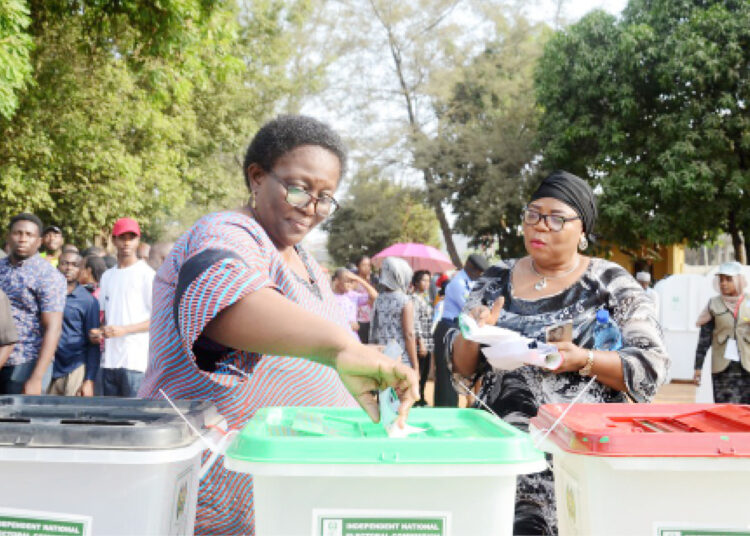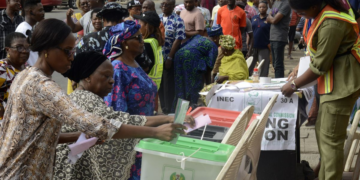Nigerians have been “suffering and smiling” for a long time. Every election cycle comes with political parties and their candidates promising to make life better for the citizenry but when victories are attained, the masses are left to their fate. Hence, the songs of lamentations are far from ending.
This has given rise to the almagamation of political parties in the past to dislodge those in power. A good example is the emergence of the All Progressives Congress (APC), dislodging the ruling Peoples Democratic Party (PDP) in 2015.
Now, we have a new political coalition that is forming in the country. The key players in the amalgam have said that it is not a movement of any particular part of the country but a journey to regain the nation and put it on the path of progress. They have claimed that no one, from the North or the South, should think that the coalition is a means for his part of the country to retain or seize power.
The composition of personalities in the fraternity might lay credence to their claim.
A list containing names of prominent Nigerians in the alliance showcases an all-Nigerian ensemble.
Any of these prominent members of the group, who hail from everywhere in the country, can emerge as the coalition’s flag bearer in 2027.
This fact is capable of allaying fears of the movement being a front for regional, ethnic or religious bid for control.
If producing the presidential candidate is the sole criterium to identify a political platform with any such interest, then it has failed but this seems not to be the interest of the new coalition.
The platform, rather, seems like that of elements within the political establishment, aiming to dislodge the APC-led government and a rallying point for a substantial number of Nigerians hoping to realise that change.
It is glaring that Nigerians from the various geopolitical zones are disenchanted with the APC government, from Buhari to Tinubu.
It is however reasonable to interrogate the electorate on why they supported Buhari for a second term in 2019 and without regard to the credibility of the election.
If that was a costly assumption for a positive change, why did they vote the same party in 2023? That does not preclude their right to change the leadership of their country, if at any juncture they so resolve, unless the concept of original sin is applicable to the issue.
The long and short of the matter is that the alliance appears to be a solidarity of political actors, who are bent on taking over power from President Bola Tinubu and the APC. This is also the popular rebuke by detractors of the group within government circles and amongst a number of critics.
They may be right in their own way, even if that exposes their naivety. Of course, what is the ultimate objective of politics other than the pursuit of power?
While agents of the government engage the coalition in fierce contention, critics who attack both sides seem to pose the greatest danger to the polity.
Their stand that neither camp is credible has the effect of weakening the support of the citizens for the opposition and failing to advance any alternative course towards change. People who assume this kind of posture are unwittingly or deliberately supporting the status quo.
The middle ground, neither here nor there, is dangerous and illogical.
People cannot express opposition to an order and then turn around to discredit other efforts towards practical democratic practices – competitive opposition.
Admittedly, both the APC and the elements that challenge their power used to belong to the same camp but if Nigerians are truly dissatisfied with the current APC rule, then the only democratic means of replacing it is through active political opposition.
Advocating that Nigerians should reject the opposition as it is currently composed on the basis of lack of credibility, is to suggest that as 2027 fast approaches, the electorate should wait for elements, who have not been tainted by participation in the nation’s politics to pick up the gauntlet or embrace the other choice of resigning to the status quo.
The more feasible alternative, of course, is for the electorate who desire change to rally round what any strong opposition they can find and during/ after the polls, ensure that their mandate is satisfactorily discharged.
Electoral victory is always a product of a covenant between seekers of office and the electorate and it is the responsibility of both sides to see to the prudent utilisation of the mandate that the partnership confers, if indeed, the object of both parties is to institute good governance and ensure common good.
Mandates are often employed to the contrary, when both the voters and the elected have non-progressive motives for participating in the political process.
After elections are won, the electorate must exercise vigilant oversight on the work and conduct of public servants in order to provide the check against lapses and excesses, rather than consign the task to a few institutions within the system itself, the operators of which also need to be watched.
As long as the citizens fail in this role, successive governments will fail regardless of however often they are changed and even if repeatedly replaced by successions of credible and unblemished set of individuals.
The view that the electorate should spurn any coalition is not only a distraction but also falls short of suggesting just how Nigerians can, if they resolve to, change the government through democratic means.
It is an illogical position that politically leaves Nigeria in the middle of nowhere.
–Shekara, writes from Sokoto











